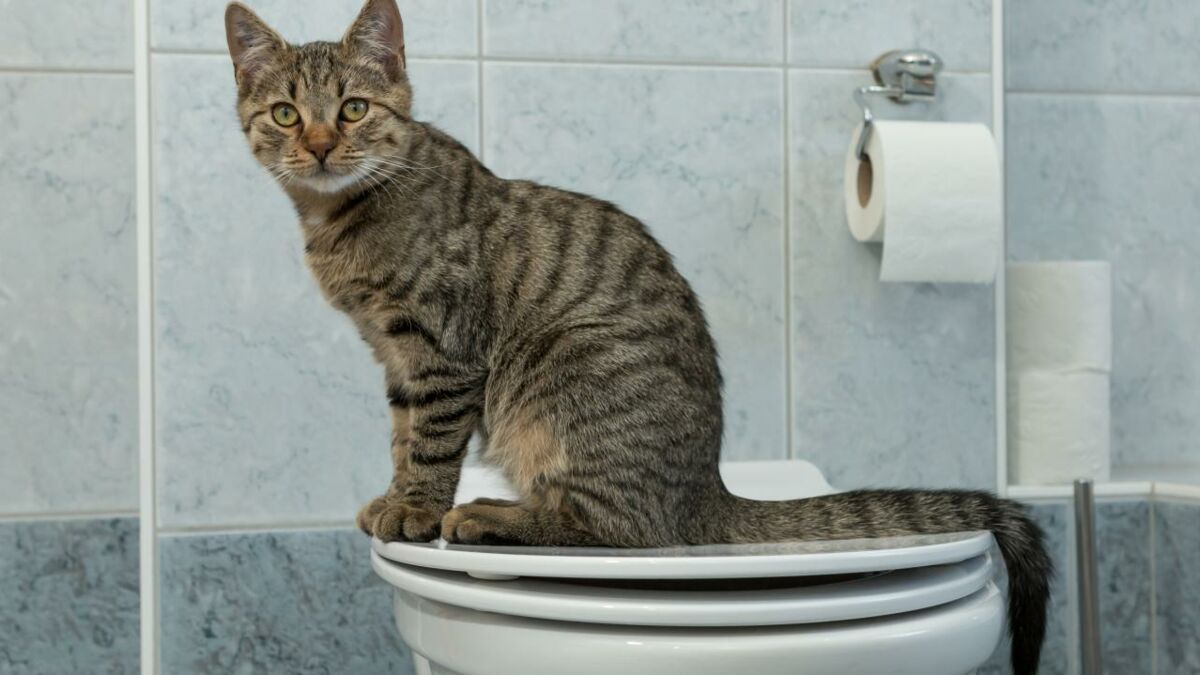Avoid Plumbing Problems: Don't Flush Cat Poop Down Your Toilet - Expert Guidance
Avoid Plumbing Problems: Don't Flush Cat Poop Down Your Toilet - Expert Guidance
Blog Article
The author is making a number of good pointers relating to How to Dispose of Cat Poop and Litter Without Plastic Bags as a whole in the content down below.

Introduction
As feline owners, it's important to bear in mind exactly how we throw away our feline close friends' waste. While it may appear hassle-free to flush pet cat poop down the bathroom, this practice can have detrimental repercussions for both the setting and human health.
Ecological Impact
Flushing cat poop presents hazardous microorganisms and bloodsuckers right into the water system, posing a substantial threat to aquatic communities. These contaminants can negatively affect marine life and concession water high quality.
Health Risks
Along with environmental worries, flushing cat waste can additionally position health and wellness risks to humans. Cat feces might include Toxoplasma gondii, a bloodsucker that can create toxoplasmosis-- a possibly severe illness, particularly for expecting women and individuals with damaged body immune systems.
Alternatives to Flushing
Fortunately, there are more secure and more responsible means to throw away cat poop. Think about the complying with alternatives:
1. Scoop and Dispose in Trash
The most common approach of disposing of cat poop is to scoop it into an eco-friendly bag and toss it in the garbage. Make sure to use a committed litter scoop and throw away the waste immediately.
2. Use Biodegradable Litter
Go with eco-friendly cat litter made from products such as corn or wheat. These litters are eco-friendly and can be safely thrown away in the garbage.
3. Bury in the Yard
If you have a backyard, consider burying feline waste in a designated area far from veggie yards and water resources. Make certain to dig deep enough to prevent contamination of groundwater.
4. Set Up a Pet Waste Disposal System
Invest in an animal garbage disposal system particularly created for feline waste. These systems utilize enzymes to break down the waste, lowering smell and environmental impact.
Final thought
Liable animal possession expands beyond providing food and sanctuary-- it additionally includes appropriate waste monitoring. By avoiding purging feline poop down the commode and opting for alternate disposal approaches, we can minimize our ecological impact and secure human health.
Why You Should Never Flush Cat Poop Down the Toilet
A rose by any other name might smell as sweet, but not all poop is created equal. Toilets, and our sewage systems, are designed for human excrement, not animal waste. It might seem like it couldn’t hurt to toss cat feces into the loo, but it’s not a good idea to flush cat poop in the toilet.
First and foremost, assuming your cat uses a litter box, any waste is going to have litter on it. And even the smallest amount of litter can wreak havoc on plumbing.
Over time, small amounts build up, filling up your septic system. Most litter sold today is clumping; it is made from a type of clay that hardens when it gets wet. Ever tried to scrape old clumps from the bottom of a litter box? You know just how cement-hard it can get!
Now imagine just a small clump of that stuck in your pipes. A simple de-clogger like Drano isn’t going to cut it. And that means it’s going to cost you big time to fix it.
Parasitic Contamination
Believe it or not, your healthy kitty may be harboring a nasty parasite. Only cats excrete Toxoplasma in their feces. Yet it rarely causes serious health issues in the cats that are infected. Most people will be fine too if infected. Only pregnant women and people with compromised immune systems are at risk. (If you’ve ever heard how women who are expecting are excused from litter cleaning duty, Toxoplasma is why.)
But other animals may have a problem if infected with the parasite. And human water treatment systems aren’t designed to handle it. As a result, the systems don’t remove the parasite before discharging wastewater into local waterways. Fish, shellfish, and other marine life — otters in particular — are susceptible to toxoplasma. If exposed, most will end up with brain damage and many will die.
Depending on the species of fish, they may end up on someone’s fish hook and, ultimately on someone’s dinner plate. If that someone has a chronic illness, they’re at risk.
Skip the Toilet Training
We know there are folks out there who like to toilet train their cats. And we give them props, it takes a lot of work. But thanks to the toxoplasma, it’s not a good idea.

I stumbled upon that article on Can You Flush Cat Poo or Litter Down the Toilet? when doing a search on the internet. Sharing is good. You won't know, you may very well be helping someone out. I enjoy reading our article about Can You Flush Cat Poop Down The Toilet?.
Request Estimate Report this page